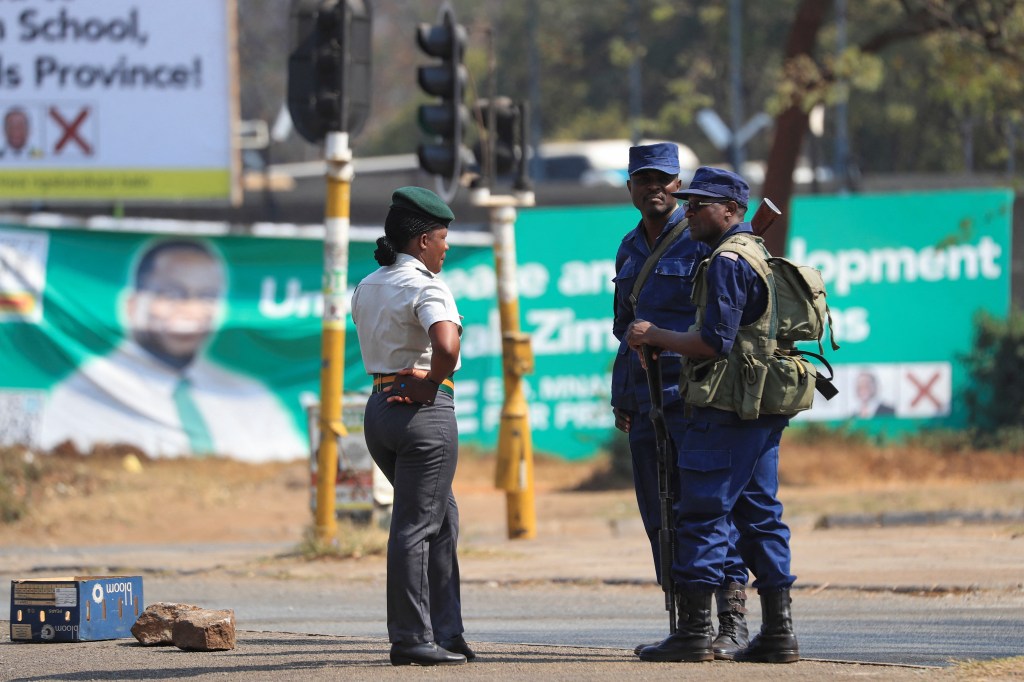Lusaka, March 5, 2024—The minister of state for Zimbabwe’s Midlands Province must immediately rescind an order barring journalists Sydney Mubaiwa and Stephen Chadenga from covering government events, the Committee to Protect Journalists said Tuesday.
Officials from the Zimbabwe Gender Commission, a statutory body concerned with gender equality, invited a group of local journalists to cover a briefing on plans to open a regional office in Gweru, a town in the Midlands Province about 223 kilometers (138 miles) south of the capital Harare, on February 27. Before the meeting could begin, Owen Ncube, the Minister of State for Midlands Provincial Affairs and Devolution, asked all the journalists to introduce themselves, saying some were not fit to cover government events, according to news reports and the two journalists who spoke to CPJ.
After Mubaiwa, a reporter with the privately owned Mirror Midlands Newspaper, and Chadenga, a reporter with the privately owned newspaper Newsday, introduced themselves, Ncube told them they were “not welcome,” accused their outlets of attacking the government, and banned them from future government meetings in the Midlands Province. Ncube then ordered his security officers to escort the journalists out of the room.
“Barring journalists from covering government events points to a troubling unwillingness by Minister of State for Midlands Provincial Affairs and Devolution Owen Ncube to be scrutinized by the press in a manner that all public officials should expect,” said CPJ Africa Program Coordinator Muthoki Mumo in Nairobi. “Ncube should withdraw his order barring journalists Sydney Mubaiwa and Stephen Chadenga from covering state events, and Zimbabwean authorities must ensure journalists have access to report on the government.”
Six journalists from the privately owned newspapers Midweek Watch and The Sun, the state-owned newspapers Chronicle and Gweru Times, and state-owned radio station YaFM were allowed to stay and cover the meeting, Mubaiwa and Chadenga said.
Zimbabwe Gender Commission Chairperson Margaret Mukahanana Sangarwe and an official from the communications department apologized to the two journalists as they were escorted out of the meeting room. Reached by messaging app, Sangarwe told CPJ she had no comment.
Mubaiwa and Chadenga told CPJ that they had been too afraid to attend government events in Midlands Province since February 27.
The Zimbabwe Union of Journalists “unequivocally condemns” the minister’s actions, the secretary-general of the union, Mswathi Hlongwane, told CPJ, adding that the union “will not accept any attempts aimed at dividing the media along private or public media lines.”
CPJ’s repeated calls and app messages to Ncube, Virginia Muwanigwa, CEO of the Zimbabwe Gender Commission, and Jenfan Muswere, Minister of Information, Publicity and Broadcasting Services, for comment did not immediately receive replies.
